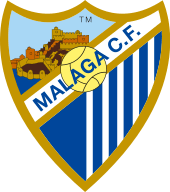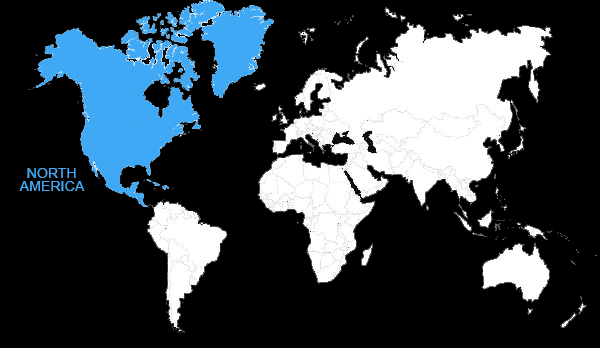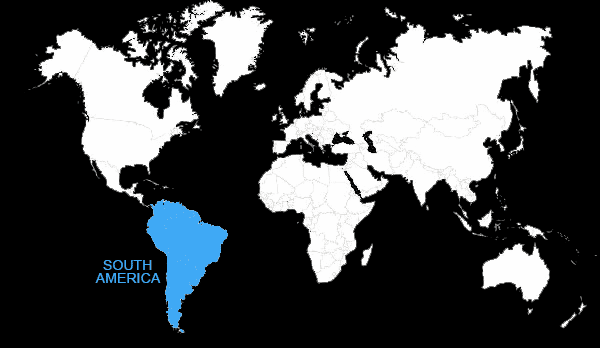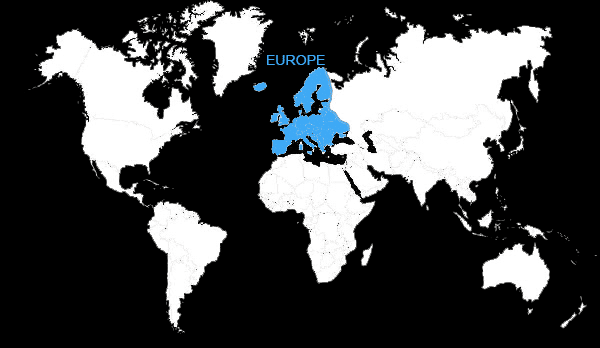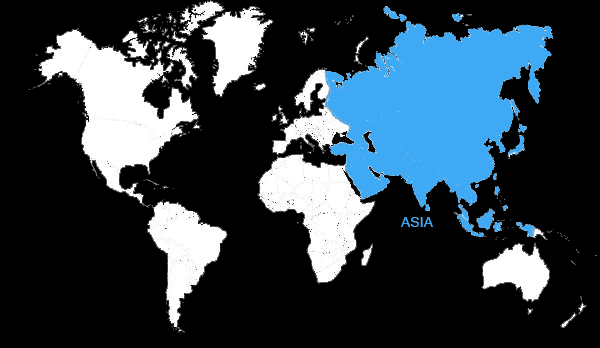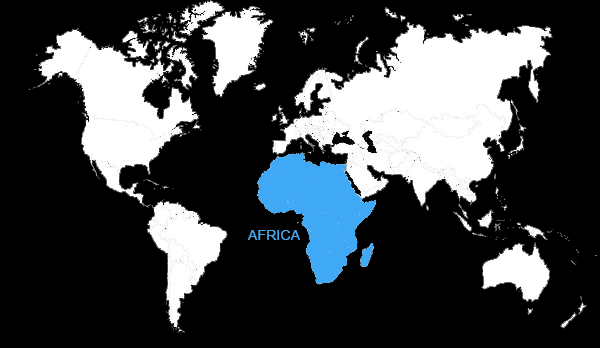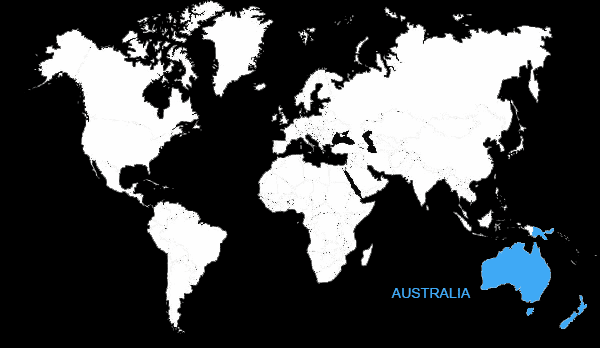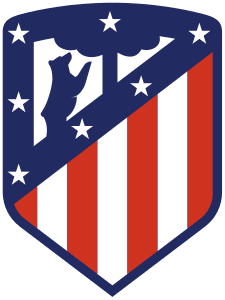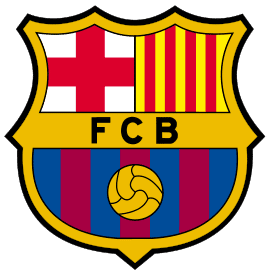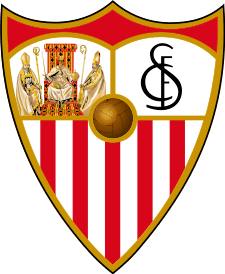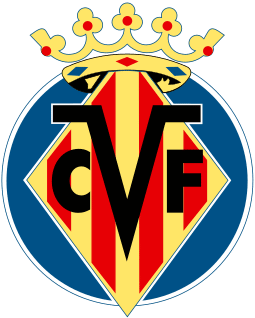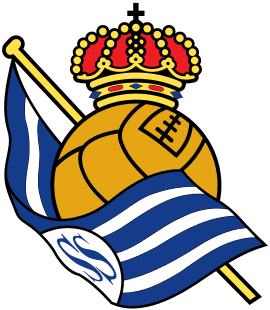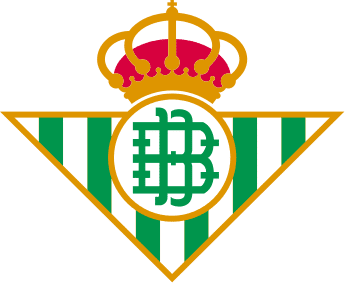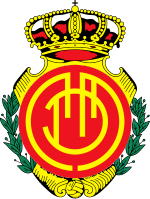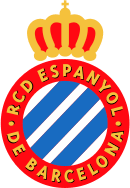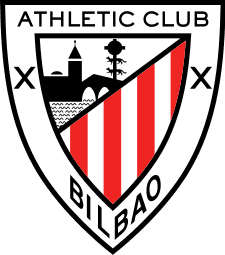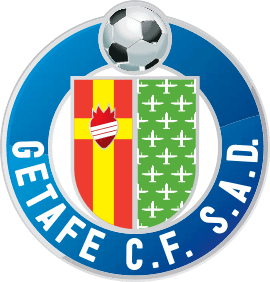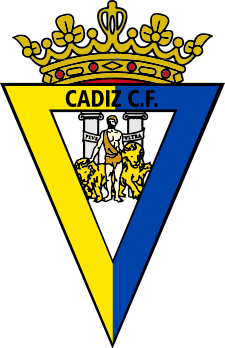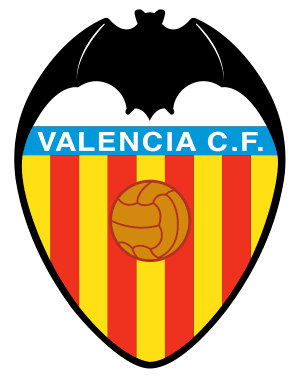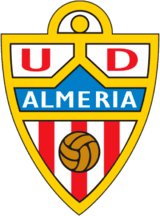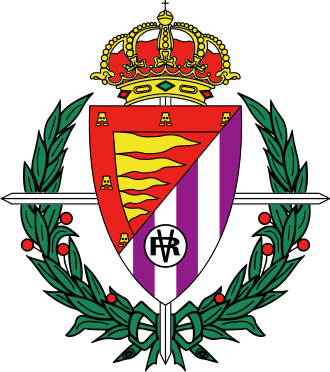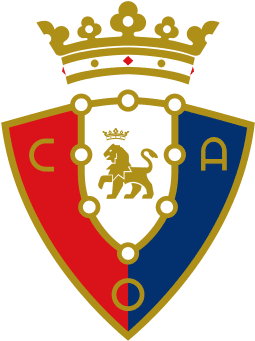Málaga CF Tryouts & Club Guide: History, Stadium, Players, and More!

Welcome!
Discover the world of soccer with fcscout.com, your go-to scout for club tryout information, club guides, player profiles, in-depth product reviews, and more. We’re dedicated to exploring and revealing the best in each domain, empowering you with knowledge to make informed choices.
Thank you for being here!
Hi, I’m Carlos! A coach, sports enthusiast, and the founder of FCScout.com.
I fell in love with the game at a very young age like many of you. I’ve been following and playing soccer for many years.
Throughout my career, I always enjoyed helping soccer players chase their dreams, which is why I started this website. I wanted to reach a larger audience outside of my local area and fcscout.com was born.
This website is a platform I will be using to update club pages on any tryouts, stadiums, players, tech, and more from clubs around the world. I also create free recruitment profiles for players looking to have that extra competitive edge when reaching out to clubs.
That’s it. That’s my pitch for you to stick around (or browse the site as you please).
This is already too much text for a “see more” drop-down button thing. If you want to reach out to me, head on over to my contact page 🙂

Málaga Club de Fútbol, commonly referred to as Málaga, is a Spanish professional football club in Málaga, Spain. The club competes in the Segunda División, the second tier of Spanish football.
Málaga CF Youth Development System
Málaga Club de Fútbol has in the Academy an important responsibility based on sports, education and teaching development. The young players within the youth ranks belong to an entity that oversees education and teaching as starting points for the development of sporting activities.
Values that the Club conveys from the foundation so our young players develop in all areas of life. Respect for the rival, solidarity and sportsmanship are values also associated with the Academy that, thanks to this philosophy and methodology, as well as boasting a Sports City that is soon to be a reality, becomes a benchmark for youth ranks on a national and European level.
Málaga Youth Teams
The MCF Academy is composed of numerous teams that make up the Club’s grassroots football. The lower categories include Juvenil, Cadete, Infantil, Alevín, Benjamín and Prebenjamín, in which the young footballers grow as players and people, with the support of the group of coaches who prioritise the development of the player, without obviating the competitive aspect.

The positive results support the progressive growth of the youth teams, that in the Juvenil División de Honor has one of its greatest exponents, being the last step before moving up to Málaga CF’s reserve team, Club Atlético Malagueño. To see a list of all youth teams, please click here.
Club Atlético Malagueño
With the aim of developing players, and prevailing the spirit of the Academy, Club Atlético Malagueño is a team comprising of young footballers who aspire to reach the first team.

Their main task is to offer mechanisms of play that allow for collective and individual growth in each of the players that form part of the squad. Currently, Atlético Malagueño competes in Third Division RFEF – Group IX. Juan Francisco Funes is the head coach of the team. To learn more about Club Atlético Malagueño, please click here.
Málaga CF Recruitment Trials
At the time of this writing, there are no official publications on Málaga CF trials. Please come back at a later date while we monitor this club or click here to visit their official youth academy news page for the latest updates.
EXPLORE MORE CLUBS!
Explore more professional clubs by continent.
Málaga CF History
The origins of Málaga may be traced back to CD Málaga, a club that was established in 1904. After CD Málaga absorbed CD Santo Tomás for the purpose of establishing a reserve team, Club Atlético Malagueo was established on May 25, 1948 as a former reserve team of CD Málaga. This occurred after CD Málaga, which had absorbed CD Santo Tomás for the purpose of establishing a reserve team, took over as Málaga’s main team.
After the conclusion of the 1958–1959 Segunda División season, Club Atlético Malagueo and CD Málaga were placed in the same division of the Tercera División for the 1959–1960 season. This was due to CD Málaga’s relegation from the Segunda División. The former group ought to have competed in the lower-level regional tournaments given their status as a reserve squad. They severed ties with their previous club in order to circumvent this situation, and subsequently registered with the Royal Spanish Football Federation as an independent club. Following CD Malaga’s decision to cease operations, CA Malagueo was able to continue operating as a result of this action.
During the 1992–1993 year, CA Malagueo competed in the Tercera División Group 9 competition. As a result of the club’s strong performance during the previous season, it was awarded promotion to the Segunda División B. The next year, however, the club once again finished in the bottom division, and because of ongoing financial issues, they were in risk of going out of business.
CA Malagueo changed their name to Málaga Club de Ftbol S.A.D. on June 29, 1994, following the results of a referendum held by the club’s members on December 19, 1993. The members voted in favor of changing the club’s name.
At the beginning of the 2000s, Málaga was a club that possessed a stadium that was more up to date and developed as well as a youthful player pool of the highest caliber. Málaga enjoyed consistent success throughout Joaqun Peiró’s tenure as head coach, although the club was never competitive enough to make a run at the Champions League.
They participated in the UEFA Intertoto Cup just once, in 2002, and won it after claiming victories over Gent, Willem II, and Villarreal. This is the only recognized trophy they have ever won. Málaga’s run in the UEFA Cup was something of an overachievement, and it ended in a loss on penalties to Boavista in the quarter-finals. Prior to that, Málaga had defeated eljezniar Sarajevo (who had been eliminated from the Champions League by Newcastle United), Amica Wronki, Leeds United (after a 2–1 win at Elland Road, courtesy of two goals scored by Julio Dely Valdés
After Peiró’s retirement, there was a slow but steady departure of employees. All of the club’s former players, Daro Silva, Kiki Musampa, Dely Valdés, and Pedro Contreras, have departed. Juande Ramos took over as coach and oversaw a 5–1 home thrashing of Barcelona, the club’s biggest victory against the Catalan giants, with a hat-trick from loanee Salva Ballesta, who would ultimately end up missing out on the Pichichi Trophy by just two goals. This victory was the club’s biggest victory against the Catalan giants. Gregorio Manzano, however, replaced Ramos as the leader of the team after Ramos departed for the Sevilla.
Manzano was able to take Málaga to their second straight tenth-place finish, but he was not successful in preventing a poor team from being relegated, as they finished at the bottom of the league with a meager 24 points to their name.
Málaga got off to a strong start in the new season in the second division. Despite this, they had a severe decline in performance and spent two of the remaining six weeks in the bottom three in the standings. Malaga was able to rectify the problem and finish their first year in the Segunda division with a winning record.
The 2007–2008 Segunda División season similarly got off to a strong start, winning its first seven games in a row. It appeared like Málaga would be able to advance to the next level, but after suffering yet another dip in performance, Numancia was able to pass them and grab the lead. They required a win in their last game, which was against Tenerife at home in order to guarantee promotion. Málaga earned promotion to the top division of Spanish soccer as the runner-up after claiming a 2–1 victory thanks to two goals scored by Antonio Hidalgo.
Because of the club’s financial difficulties, Fernando Sanz, who was serving as president at the time, searched for investments in Doha, Qatar, in order to kick off an ambitious project. During this time, he had meetings with sheikh Abdullah ben Nasser Al Thani. Al Thani became the new owner of the company on June 11, 2010, following a week of discussions. On July 28, 2010, during a meeting of the members, Al Thani was elected president of the company.
On June 28, 2010, Jesualdo Ferreira was hired on as the head coach, while Moayad Shatat was hired as the vice president and general manager of the organization. After this, notable players like as Salomón Rondon and Eliseu were brought on as free agents to join the team. However, Jesualdo was let go in November due to the fact that he had not achieved the anticipated performance, which put the club in a position where it was in danger of being relegated. After some time had passed, Shatat confirmed Manuel Pellegrini’s position as coach.
While “The Caretaker” was in control of the team, the decision was made to release some members of the squad and replace them with stronger players such as center defender Martn Demichelis and midfielder Jlio Baptista.
The squad was able to keep up its momentum in the league thanks to a record-setting streak of five consecutive victories in La Liga, as well as a draw against Athletic Bilbao at San Mamés at the beginning of January 2011. As a result, the team finished the 2010–11 season in 11th position.
The club made the decision to strike a contract with Nike in order to have them serve as their uniform supplier for the 2011–12 season.
Málaga also came to an agreement to work together with UNESCO, which, in addition to becoming the primary sponsor of the club’s shirt, became a partner in the project.
The Dutchman Ruud van Nistelrooy, the former Lyon midfielder Jérémy Toulalan, and the most expensive signing in the club’s history, Santi Cazorla, who arrived from Villarreal in a deal worth €21 million, were the more notable signings during that season. Jérémy Toulalan was the French midfielder who had previously played for Lyon. Other players who did not garner as much attention, such as left back Nacho Monreal and midfielder Joaqun, both of whom have played for Spain at the international level, were essential to the success of the next season for Málaga. After finishing in fourth place during the 2011–12 season of La Liga, the club earned a spot in the Champions League for the very first time in its long and illustrious history. Málaga, who were competing in the Champions League for the very first time, were placed in a group containing the illustrious Italian club Milan, as well as the reigning national champions of Belgium and Russia, Anderlecht and Zenit Saint Petersburg, respectively.
Málaga advanced to the knockout round without suffering a single loss, prevailing in each of their meetings against the other three clubs. The squad drew the Portuguese champions Porto in the round of 16, and after suffering a loss on the road by a score of 1-0, they prevailed at home by a score of 2-0 and advanced to the quarter-finals. When Malagauistas played the German champions Borussia Dortmund in a match that was eagerly anticipated, the home game resulted in a scoreless draw. This gave Malagauistas a realistic opportunity to progress on the basis of a scoreless draw in the road matchup. The scoreboard showed 1–2 at the full 90 minutes mark, seemingly ensuring Málaga’s place in the semi-finals. However, two late goals by Marco Reus (in the 90+1st minute) and Felipe Santana (in the 90+3rd minute) turned the table in favor of the home team. In a second leg that was marked by controversial referee decisions, the scoreboard showed 1–2. The club president, Abdullah ben Nasser Al Thani, made the announcement shortly after the elimination that a formal protest will be filed with both UEFA and FIFA.
After the conclusion of the previous campaign, the UEFA decided to expel Málaga and several other teams due to their mounting debts. The organization said in a statement that the club would not be allowed to participate in any future competitions for which it would have otherwise qualified over the following four years. However, the suspension was later reduced to only one season, and the team was barred from participating in the Europa League in 2013–2014.
After 2013, Málaga fell into a continuous slide that would result in them finishing in a lower position in the league each year. This trend would continue until 2018. Málaga took on Levante U.D. on April 19, 2018, with the goal of breaking their losing streak of 10 games in a row, which had dropped them to 20th position in the LaLiga standings. Despite this, things went from bad to worse for Málaga, as they let Emmanuel Boateng of Levante score a goal during stoppage time, which resulted in the game ending with a score of 0–1. As a result of this defeat, Málaga would be demoted to the Segunda División, putting an end to their streak of 10 consecutive seasons playing in the Primera División.
Málaga finished third in the Segunda División in 2019, although they were knocked out of the play-offs by Deportivo de La Corua in the first round. As a result, they did not earn promotion to La Liga for the 2019 season. For the 2019–20 Segunda División season, Víctor Sánchez del Amo will remain as coach.
Early in the year 2020, it was reported that club owner Sheikh Abdullah Al Thani and his family, who owed Málaga €7.3 million in loans and credit lines, were buying out shares from smaller shareholders to be directed to their personal expenses and business interests. However, as of February 2022, there has been no evidence to prove any misconduct that would allow the courts to rule that a criminal case is justified.
In August of 2020, the court-appointed administrator made a statement saying that in order to rescue the club from going out of business, he would be firing every member of the first-team squad.
Málaga CF Stadium
A football stadium known as Estadio La Rosaleda can be found in the city of Málaga, which is located in the region of Andalucia in southern Spain. It is the home stadium of Málaga CF in the Segunda División and was formerly that of the Club Deportivo Málaga, which Málaga CF is the heir to. Málaga CF plays in the Segunda División. During the time that he was playing in the second division, the subsidiary Atlético Malagueo utilized it as a regular playing surface. This stadium is the site of an annual football competition known as the Costa del Sol Trophy Cup, which is put on by the Malaga Football Club in collaboration with the Malaga Municipality. It is the 18th largest stadium in Spain and the 4th largest in Andalusia, with a total capacity of 30,044 seats.
This took the place of the old arena of Baos del Carmen’s football pitch. As a result of the flooding, the rose garden was put to use for the first time on April 13, 1941, when it hosted a match between the CD Málaga and the AD Ferroviaria. On the other hand, the formal opening was on September 14, 1941, and it consisted of a friendly match between the CD Málaga and Sevilla. During this match, CD Málaga debuted its new name, which is a change from its former moniker, CD Malacitano.
